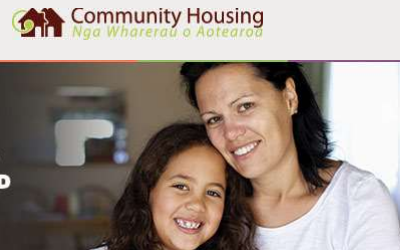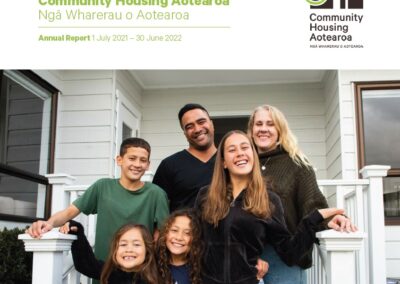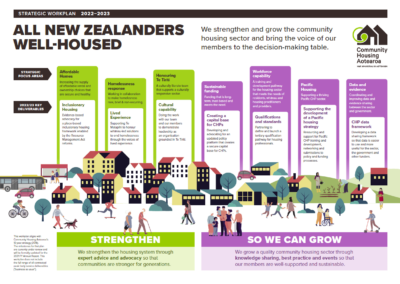Housing First tenant, Stan, has lived in his new home for the past year, after years on the streets.
It’s been a year since the formation of the coalition government and as part of an RNZ special, One Year On, we look at whether these promises have been met and what’s still to come.
Since the election, community housing groups say the government has exceeded some of its promises but failed to live up to others.
Just prior to winter, the government unveiled its $100 million plan to tackle homelessness.
It drew cautious applause from community housing providers, and scoffs from the National Party which said it had pledged $300m in 2016 to tackle the same issue.
Housing and Urban Development Minister Phil Twyford, who made the announcement at Te Puea Marae, said the government’s goal was to create 1500 extra places over winter.
That included transitional accommodation, public housing and motel units.
This month, Mr Twyford revealed the government has exceeded its target by 264 places.
“The public also heard our government’s call to help us house the vulnerable this winter,” Mr Twyford said.
“Members of the public, private landlords and landowners, NGOs, iwi and developers came forward with 380 offers of housing.”
In July, the government said it had housed nearly 4000 people, including 3500 households in immediate need and another 500 people into long-term homes.
But, despite the addition of 1764 spaces in transitional housing, the number of people on the social housing wait-list has blown out to more than 10,589 people, including those looking to be transferred. That’s up 3816 people from June the previous year.
Mr Twyford attributed that to more people feeling comfortable coming forward to ask for help.
Bernie Smith of Monte Cecilia Trust said the government had inherited a homelessness crisis.
He agreed that a different political climate could be a factor in people coming forward for help.
“People are feeling willing to speak out about inadequate housing and there are people now coming forward that would never have come forward before.”
The Public Housing Plan was announced in August. It details the locations and timelines for 6400 new social houses being built over the next four years.
That will be funded by $234.4m from the 2018 Budget, Housing New Zealand borrowing $2.9 billion from third parties, and a further $900m from its operations.
The plan includes an extra 3550 public houses in Auckland.
But Mr Smith said that isn’t anywhere near the number needed to match growing demand.
“It’s not even keeping up with the wait-list,” he said.
He said some of the KiwiBuild housing focus needs to be re-oriented towards more social housing, more affordable rentals and a range of shared-equity schemes.
The situation for beneficiaries and the working poor has worsened in the last three months, he said.
“There are extra fuel taxes, rents are going up, landlords have now sold because of concerns about house warrants of fitness,” he said.
Mr Smith gave “full marks” for the government’s aspirational targets but added that the government needed to move “off the election platform of 10,000 KiwiBuild houses”.
A South Auckland house which has been allocated under the Housing First programme which places chronically homeless people into permanent housing. Photo: RNZ / Eva Corlett
And some of the government’s actions to eliminate homelessness are working, he said.
About $63m of the government’s social housing spend is committed towards ramping up Housing First – a programme that places chronically homeless people into permanent housing.
The programme has housed 532 people since May last year.
One tenant, who RNZ will call Stan, has now lived in his South Auckland home for just over a year.
Inside, it is heavily decorated with photographs of his children and family.
A cat watched on from the arm of the couch, while Stan’s spiderman-fanatic youngest played on an Ipad.
“This don’t feel like home, it is home,” Stan said.
“My family can come here to visit me, instead of coming to the street to visit me.”
Before moving into the Housing First home, Stan had lived rough for years.
When he wasn’t on the streets, he was at his grandmother’s home in Kaikohe.
“Then my nan died and I didn’t have anywhere to go.”
He didn’t like staying on streets.
“The cold at night was the worst part, and too much walking. It’s embarrassing asking people for coins,” he said.
Stan tried to seek help at Work and Income, but because he did not have an address, he was not able to get the benefit, he said.
“It would have been good to have a job but you need a house when you’ve got a job. You can’t wake up on the street and go to work.”
Without a home, there’s nowhere to shower or relax, he said.
Eventually, he found out about Housing First through a church.
Within two months, they had found him a home.
“Housing First is better than Housing New Zealand.”
“Look at what it done for me – you don’t have to wait years just to move into a house. Wouldn’t it be better that way, just to put you in a house first?”
Stan, who regularly drops blankets, clothes and food to other streeties, is now in training to work with the community group LinkPeople.


